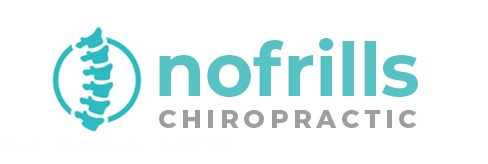Neck pain: Causes & how to relieve it
Neck pain is a common woe that most of us have experienced at some point in our lives. But before reaching for painkillers, have you considered natural ways to alleviate your neck pain?

About Neck Pain
TYPES OF NECK PAIN
What sets acute and chronic neck pain apart?
Before exploring potential treatments, it’s crucial to grasp the distinct types of neck pain, usually categorized into two primary groups:
What are the prevalent types of arthritis?
Acute Neck Pain
Typically triggered by a specific incident, such as a car accident causing whiplash, a fall, or muscle strain from heavy lifting.
Swift and intense onset.
Short-lived, lasting from a few days to a few weeks.
Tends to improve gradually with rest, home care, and basic remedies.
Chronic Neck Pain
Persistent discomfort lasting an extended period, usually beyond three months.
Arises from underlying medical conditions like herniated discs, arthritis, or degenerative disc disease.
Aggravated by factors such as poor posture, stress, and repetitive motions.
NECK PAIN IN THE MORNING
What causes neck pain or stiffness upon waking up?
Experiencing neck pain or waking up with a stiff neck is a common occurrence for many. It has the potential to affect your mood right from the start of the day. Numerous factors may contribute to this discomfort:
Pillow choice
Your choice of pillow significantly affects both your sleep quality and neck health. An improperly sized or positioned pillow can force your neck into unnatural positions, causing strain and stiffness.
Sleeping position
The way you sleep matters. Sleeping on your stomach can result in an awkward neck angle, whereas sleeping on your side or back with proper pillow support is generally considered more conducive to neck health.
Mattress quality
An unsupportive or excessively firm mattress can contribute to neck pain. It’s crucial to ensure your mattress provides proper spinal alignment to prevent discomfort in the neck.
Poor sleeping habits
Engaging in activities like reading or watching TV in bed with your head elevated on multiple pillows can lead to strain on your neck muscles over time.
Sleep-related disorders
Conditions like sleep apnea, disrupting your sleep, may cause morning neck pain due to unusual sleeping positions.

IDENTIFYING THE CAUSE OF NECK PAIN
What can contribute to neck pain?
Neck pain may originate from diverse sources, and accurately identifying the underlying cause is crucial for crafting effective treatment strategies. Consider these common factors:
Incorrect body alignment
The contemporary lifestyle we lead, characterized by extended periods hunched over computers and smartphones, can have detrimental effects on our necks. Poor posture during these activities may strain the muscles and ligaments in the neck, resulting in discomfort and pain.
Muscle overexertion
Engaging in activities involving heavy lifting or repetitive neck movements can lead to muscle strain, causing acute neck pain that often improves with rest and gentle stretches.
Disc herniation
The presence of herniated discs in the cervical spine can exert pressure on the nerves, contributing to neck pain. This condition may also lead to radiating pain and numbness in the arms and shoulders.
Arthritic conditions
Osteoarthritis and rheumatoid arthritis can impact the joints in the neck, resulting in chronic neck pain, with these conditions often becoming more pronounced with age.
Emotional tension
Stress, a common component of modern life, can manifest physically, and neck and shoulder tension is a prevalent symptom. Persistent stress can intensify neck pain and contribute to muscle stiffness.
Sleeping posture
Surprisingly, even your sleeping position matters. Sleeping with an improper pillow or adopting an awkward position can strain the neck, causing discomfort upon waking.
Physical trauma and injuries
Accidents such as car crashes or falls can lead to traumatic neck injuries like whiplash, requiring immediate medical attention.

There are no universally right or wrong approaches; it genuinely hinges on your risk tolerance. Instances exist where individuals find relief, reassured that their scoliosis isn’t progressing.
Conversely, there are situations where people express regret for not taking action sooner.
SEEKING PROFESSIONAL ASSISTANCE FOR NECK PAIN
Is it better to consult a chiropractor
or a doctor for neck pain?
Consulting a medical doctor
A medical doctor, often a general practitioner or orthopedic specialist, is the ideal choice if:
- You are experiencing severe neck pain stemming from a recent injury or trauma.
- Your neck pain is accompanied by symptoms like numbness, weakness, or tingling in your arms or hands.
- You have a history of neck or spinal surgeries.
- There is suspicion of an underlying medical condition, such as a herniated disc or arthritis.
- Your neck pain persists and does not respond to home remedies or conservative treatments.
Medical doctors can conduct diagnostic tests like X-rays, MRIs, or CT scans to pinpoint the cause of your neck pain. They can also prescribe medications or recommend surgical interventions if required.
Consulting a chiropractor
Chiropractors are healthcare professionals specializing in the musculoskeletal system, including the spine and neck. You might consider consulting a chiropractor if:
- Your neck pain is primarily related to musculoskeletal issues, such as muscle tension or misaligned vertebrae.
- You prefer drug-free, non-invasive treatments.
- You desire a holistic approach to address not only the symptoms but also the underlying causes of your neck pain.
Chiropractors employ manual manipulation techniques, like spinal adjustments, to realign the spine and alleviate musculoskeletal pain. They may also offer guidance on lifestyle changes, exercises, and stretches to enhance neck health.
It’s crucial to note that chiropractic care may not be suitable for everyone, especially in cases of severe injury or underlying medical conditions. A spinal check-up can help determine if chiropractic care aligns with your needs.
SHOULD I CONSULT A CHIROPRACTOR OR MASSAGE THERAPIST FOR A STIFF NECK?
Consulting a medical doctor
Evaluation: The chiropractor will assess your neck’s range of motion, posture, and alignment to identify any misalignments or subluxations. At NoFrills Chiropractic, we ensure a comprehensive evaluation during our spinal check-up.
SEEKING A MASSAGE THERAPIST
Massage therapists specialize in manipulating soft tissues and muscles to induce relaxation and alleviate tension. If you opt for a massage therapist to address your stiff neck, here’s what you can expect:
Massage techniques: The therapist will employ various massage techniques, such as Swedish massage or deep tissue massage, to target the muscles in your neck and shoulders.
Relaxation: Massage therapy aids in relaxing tight muscles and reducing muscle spasms, fostering improved blood flow and pain relief.
Stress reduction: Massage therapy can also contribute to stress reduction, which, in turn, may alleviate neck stiffness.
While some individuals may find relief after a few initial adjustments, others may require several months. At NoFrills Chiropractic, our approach extends beyond mere pain relief; we aim to tackle the root cause through consistent adjustments (typically 1-2 times per week) and a personalized exercise and stretch plan over a few months.

SEEKING PROFESSIONAL ASSISTANCE FOR NECK PAIN
Should I consult a chiropractor or a doctor for neck pain?
CHIROPRACTOR FOR NECK PAIN
Exploring the role of chiropractic care in neck pain management
Mild cases of military neck
In instances of mild military neck or cervical kyphosis, where the curvature is minimally altered, chiropractic care may offer some advantages.
Chiropractors can employ gentle spinal manipulation techniques to enhance spinal alignment and alleviate discomfort.
Additionally, they might suggest specific exercises and stretches to promote better neck posture.
Severe cases of military neck
Severe cases of military neck, where the neck curves abnormally, often need a multi-step approach for treatment.
Consulting a spine specialist, like an orthopedic surgeon, is crucial for a thorough evaluation. Depending on the severity, treatment may include medication, physical therapy, or even surgery.
Chiropractic care can be part of the plan to manage pain and improve mobility, working alongside medical treatments. Patient education and support are also vital throughout the process.
It’s crucial to consult with a healthcare professional, such as an orthopaedic specialist or a spine surgeon, if you suspect you have cervical kyphosis or are experiencing neck pain and stiffness. They can provide a thorough evaluation, including imaging tests, and recommend the most appropriate treatment plan based on the severity of your condition.
CHIROPRACTOR FOR ARTHRITIS
How many chiropractic sessions are needed for neck pain relief?
Acute neck pain
For acute neck pain, characterized by its short-term nature and often linked to muscle strain or minor injuries, relief can be experienced after just a few chiropractic sessions. Many individuals witness significant improvement within a few weeks of regular adjustments.
Chronic neck pain
Persistent neck pain lasting more than three months may necessitate a more prolonged course of chiropractic care. Collaborating with your chiropractor, you’ll develop a personalized care plan. This plan may involve more frequent sessions initially, gradually reducing in frequency as your symptoms improve.
Maintenance care
Following the initial chiropractic care phase, individuals with chronic neck pain may opt for periodic maintenance chiropractic sessions. These sessions, occurring less frequently than the initial care plan, aim to prevent neck pain recurrence and maintain optimal spinal health.
Individual response
It’s crucial to recognize that individual responses to chiropractic care can vary. Some may experience swift relief, requiring fewer sessions, while others may need an extended care period to achieve desired results. Your chiropractor will continually assess your progress, making necessary adjustments to your care plan.
Lifestyle factors
Beyond chiropractic care, lifestyle factors significantly contribute to neck pain management. Your chiropractor may offer guidance on posture, ergonomics, exercises, and stretches that you can incorporate into your daily routine. This holistic approach supports neck health and reduces the necessity for frequent chiropractic sessions.

NECK PAIN MANAGEMENT
Can neck pain be managed?
Note: The information provided is not a substitute for a diagnosis or medical care. Symptoms and treatments vary from person to person, and consultation with a chiropractor is recommended for an accurate diagnosis and personalized recommendations.
Book your initial chiropractic visit
hello@nofrillschiropractic.com
Phone
9007 1085
Open Hours
Mondays - Sundays: 9am-6pm
We're here whenever you need us
hello@nofrillschiropractic.com
Contact Us
9007 1085
Open Hours
Monday-Sundays:
10am to 7pm
Address
279 Tanjong Katong Rd
S437062
